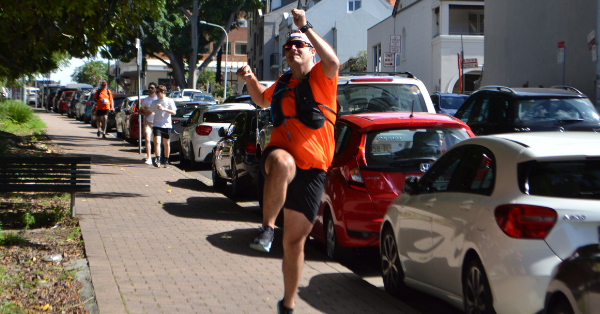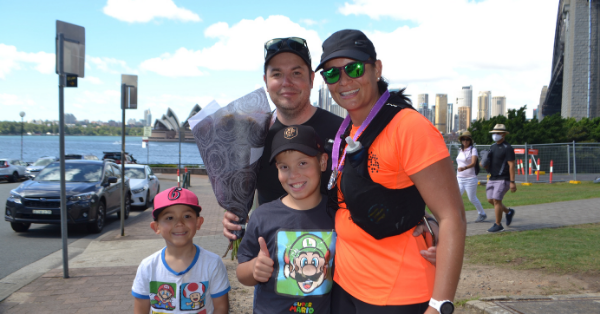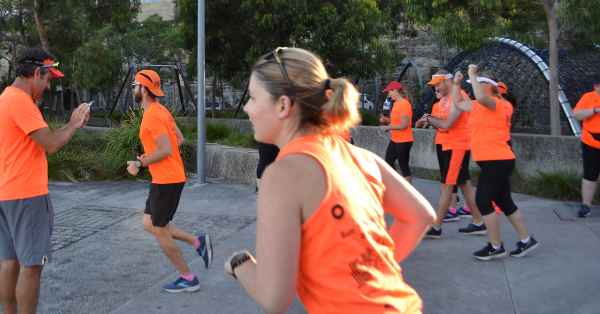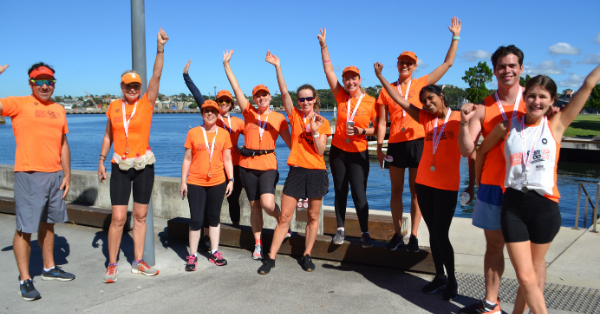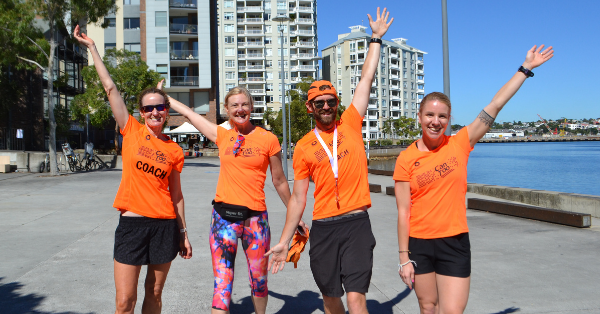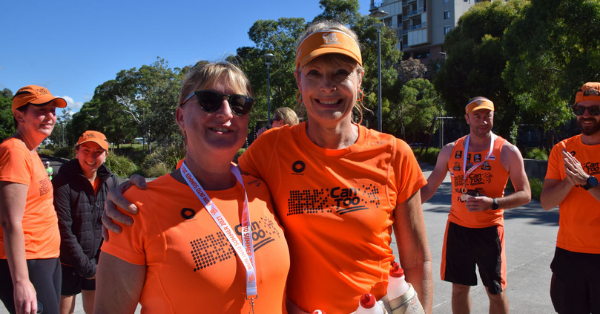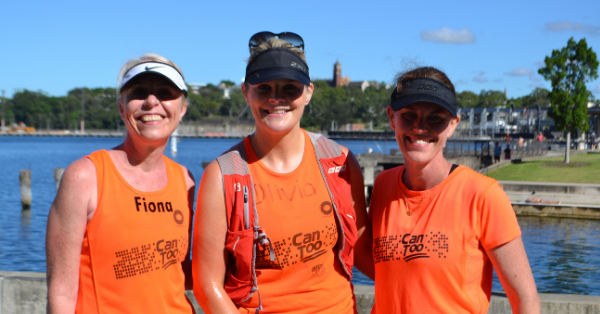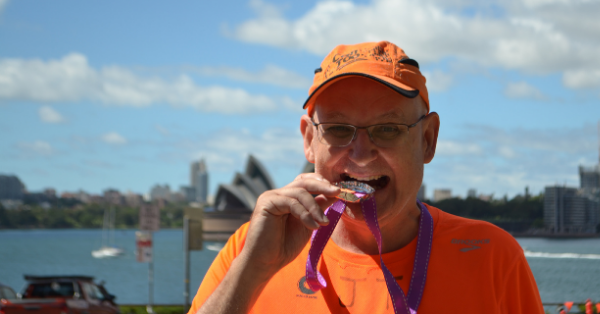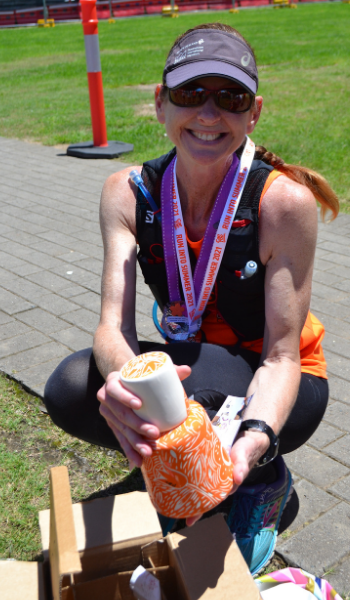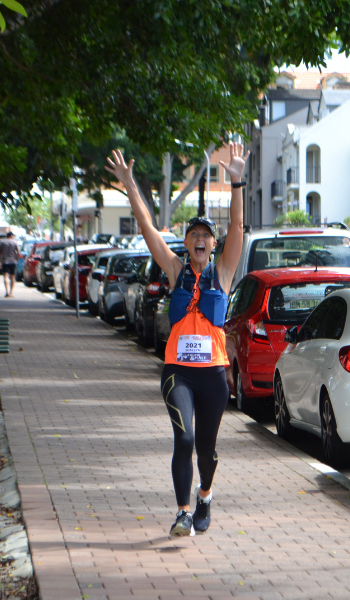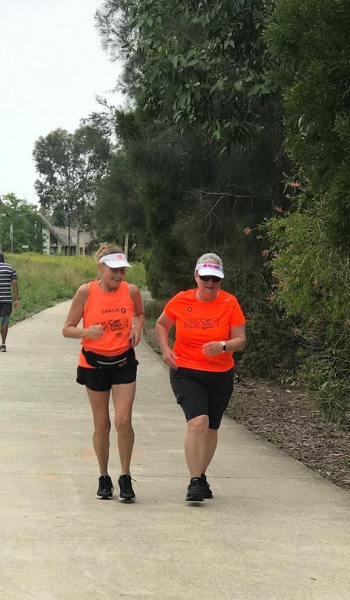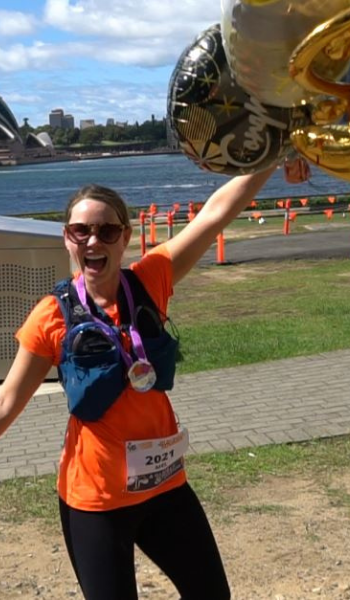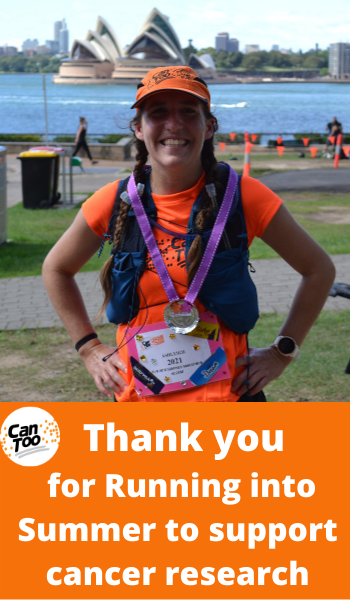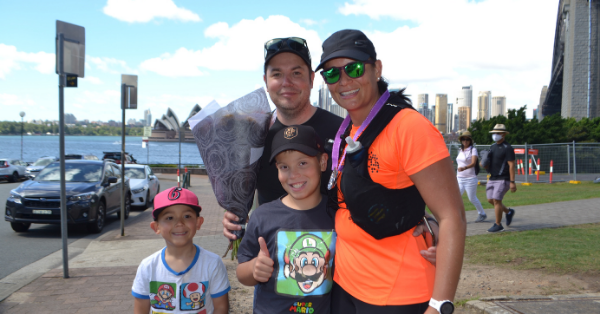
Teue Collier started 2021 on a positive note by achieving a bucket list goal to run a marathon. This was in stark contrast to last year when her son, Orson, underwent intensive treatment for Leukaemia, which saw her family virtually moving into a hospital ward.The 40-year-old became the fittest she’s ever been and discovered many unexpected benefits from training with Can Too, which has transformed her life.
She completed the 42km grand finale run of Can Too’s Run into Summer program on 9 January 2021 and doubled her fundraising pledge, to raise nearly $5,000 for Australian cancer research.
Her favourite moment of the marathon was when she reached the 41km mark.
“I stopped [on the Sydney Harbour Bridge], and just took in the views and reflected on the journey that we’ve been on,” said Teue.
“Everyone said that when running a marathon, it’s the journey not just the run at the end. I really got that on the day. It was such an amazing journey to go on with an amazing group, to get fit again and raise money for cancer research.”
She was inspired to sign up for a marathon by her colleague, Can Too 10k Hall of Famer, Cath Williams who completed the 2019 New York Marathon.
The Medical Device Product Specialist found many unexpected results from the training including alleviating anxiety from the effects of a traumatic year.
Teue started training six months after her son had finished intensive treatment for Precursor-B cell Acute Lymphoblastic Leukaemia. Leukaemia is the most common type of cancer among children. [1]
Cancer is a leading cause of death for children and adolescents around the world and approximately 300,000 children aged 0 to 19 years old are diagnosed with cancer each year.[2]
“Because I work in the medical space, have a Biomedical Science degree, and as a parent I threw myself into learning all about that type of cancer - the research, side effects, statistics and the effects on child cancer patients from COVID-19. I was very proactive, that’s not always a good thing as you find out worse case scenarios which can generate a lot of anxiety.
As Orson was in the high risk group she needed to know what to expect.
“There was a small chance of severe side effects, resulting in death. I did flag a few things that were life threatening, that he got early treatment for.
“His prognosis of a cure is more than 90 per cent at the moment. We like those odds. They are almost as good as it gets, so we’re very lucky. Nothing is guaranteed until after 10 years post treatment which is when he can be declared cured.”
She has also seen her sister-in-law go through cancer treatment, who is now in remission from inflammatory breast cancer, and her dad has type CLL blood cancer, a common elderly person’s slow progression cancer.
“That’s why I’m so passionate about cancer treatment.”
Orson is still undergoing eight months of oral chemo maintenance before he’s declared officially cancer free.
Teue explained that her counselor calls this phase the recovery and transition period.
“It’s where life nearly goes back to normal but there’s still treatment. They’re not given the all clear yet, this is when the anxiety appears. I had high anxiety. I was very irritable. I was not eating well, drinking far too much wine on the weekends, and comfort eating a lot.”
However, within two weeks of marathon run training her anxiety disappeared.
“I was happier, sleeping well and not eating and drinking as much. I was back to my old self again. About halfway through the Can Too program my husband said to me that this has changed my life.
“I was upfront with my Coach, Simone Clucas, in the beginning that I had some bad habits and that I needed to snap out of the anxiety phase.”
After Teue completed her first run, which she did solo due to kids responsibilities, she texted Simone to say that even though it hurt, she loved every minute of it and was happy to see the sunset.
“I think this is going to be the best thing for me,” Teue wrote. “It already is the best thing for you, well done,” replied Simone.
Teue explained that once she started to run over 20km she made big breakthroughs with her mental health.
“You experience these peaks and troughs. I was elated for days after running 24km as I never thought I could run that far. But then I’d come crashing down a couple of days later and be very emotional.”
She found the long-distance running a way to really clear her mind and body of things that she was carrying, that she wasn’t aware of, like deep seated anxiety.

Another surprising discovery from completing the program was that she didn’t need to be fit to start marathon training.
“I was probably at my heaviest and least fit when I went into the program, I’m the fittest I’ve ever been in my life now, including in my 20s. I had this perception you had to be really fit to do a marathon, but you become fit doing the program.
“I did nothing for nine months as I had a sick child at home and had developed bad habits. I undid those bad habits, got rid of anxiety and built good friendships at the same time.”
Teue shared that because you run at a pace where you can maintain a conversation, this creates a bonding experience with your fellow runners.
“You spend hours running side by side with people you’ve never met before and you end up talking. It’s a very safe space to share things, for me and some of the girls I ran with it felt like therapy. After a two-hour run, of talking the whole time, I felt so much better like I’ve just had therapy, it was amazing.
“Because of my son’s journey I have found that I’m prioritising my goals and ambitions now more than I did before. I don’t think I would have signed up for the marathon if my son didn’t get sick, it’s changed the way I approach life now quite significantly.”
She has also found time to volunteer to set up an education exchange charity called Hearts above the Sea, about the Pacific Island, Kiribati (pronounced Kiribus), which is where Teue is originally from. The island is predicted to be the first entire nation to be displaced because of rising sea levels due to global climate change.
“If my son didn’t get sick, I would probably still be working six days a week and hardly see my children and hardly have time for myself, thinking one day I’d like to run a marathon, but not having the time to do it. So the way my husband and I reflect on what we’ve been through is that we feel it’s been a gift. It’s not a gift that you would wish on anyone, but it comes with a silver lining. For us it’s certainly changed our priorities and our life.”
You can donate to Teue’s fundraising page here. Her next goal is to complete the Can Too Barossa Marathon program.
See a slideshow of images from the Run into Summer grand finale runs and a video of Teue post marathon below.
[1]Australian Institute of Health and Welfare (2020) Australia’s Children. Retrieved from URL: https://www.aihw.gov.au/reports/children-youth/australias-children/contents/health/cancer-incidence-and-survival
[2] World Health Organisation (2018) Cancer in Children. Retrieved from URL: https://www.who.int/news-room/fact-sheets/detail/cancer-in-children




